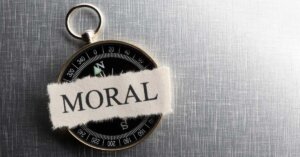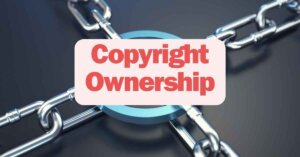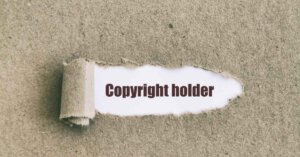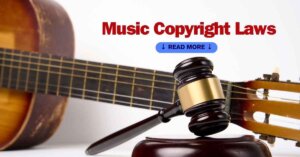Music copyright refers to the authorized ownership of a musical composition or sound recording. It entails exclusive privileges for redistributing, reproducing, and licensing the work, enabling the copyright holder to generate royalties.
Understanding this legal framework is crucial for artists and creators who want to protect their work and earn a living from their creative works.
Types of Musical Copyright
When it comes to musical copyright, it’s essential to distinguish between two main type:
1. Composition
The compositional copyright pertains to the underlying musical composition, including the arrangement of notes and melodies. It is owned by songwriters, lyricists, and composers and is managed by music publishers.
2. Master Recording
The master copyright covers the specific sound recording or “master recording” created by performing or recording artists. The recording artists and their labels typically hold this copyright.
Even in cases where the songwriter and recording artist are the same person, the music industry treats them as separate entities, leading to a complex structure of music copyright.
Copyright Owner’s Exclusive Rights
Understanding the exclusive rights granted to copyright owners is crucial for navigating the music industry and earning royalties. For further information, you may consult Am Badar’s professional Copyright Service. Here are the exclusive rights that a copyright owner have over their work:
1. Reproduce the Copyrighted Work
This allows copyright owners to reproduce the work, may it be by printing CDs or making it available on streaming services. Streaming services must obtain licenses from copyright owners to feature the songs in their platforms.
2. Prepare Derivative Works
Only the copyright holder of the musical composition can create derivative versions of the work. This includes audio-visual combinations in advertisements, TV shows, movies, and video games.
3. Distribute Copies to the Public
Copyright holders have the right to distribute copies of the composition or recording to the public– this includes both physical copies and streaming.
4. Perform the Work Publicly
This grants the exclusive right to perform the work publicly, encompassing live shows, music playing in public spaces, radio/TV broadcasts, and audio streaming.
5. Perform via Digital Audio Transmission
This right applies to digital services like Pandora and SiriusXM, specifically to the US and a few other countries.
6 Basics of Music Copyright Law
Furthermore, understanding the fundamentals of copyright law is also essential for artists and creators. Here are several points that are important to note:
1. Copyrighted Work Must Be Original
While it doesn’t have to be revolutionary, musical copyright requires the work to be original
2. Violation Must Be Established in Court
Copyright infringement must be proven in court, requiring evidence that the copyrighted work has been copied and is substantially similar to the original.
3. Record Labels Administer Master Recording Copyrights
Depending on the recording deal, labels often handle master copyright administration and royalties.
4. Publishers Administer Compositional Copyrights
Like master copyrights, publishers usually manage compositional copyrights, with a portion reserved for the author.
5. Copyrights Last 70 Years Past Owners’ Lifetime
In Indonesia, copyright protections last 70 years after the last surviving writer’s death, as stipulated by Law No. 28 Year 2014.
6. Cover Versions’ Mechanical License
Covers only require a mechanical license in the US; in some countries, a mechanical license is needed for commercial releases.
Main Advantages Music Copyright Registration
While copyright is automatically created, registering it offers two significant advantages, such as:
1. Create a Public Record of Your Copyright
Registering places the copyright in the public record, essential for enforcing rights and protection.
2. Sue for Copyright Infringement
Registered copyrights allow creators to sue for infringement, providing a legal avenue for recourse.
How to Copyright a Song
Registering musical copyright may seem complex, but the process is relatively straightforward in almost every country, including:
- Whether written down or recorded, ensure the song is fixed in a tangible form;
- Fill out an application with the copyright office using the appropriate form for compositional or sound recording copyrights;
- Pay the filing fee. The fees may vary in every country, and the application can be submitted online or physically;
- Lastly, submit copies of the work. Provide sheet music for compositions or audio files for sound recordings.
For creators in Indonesia, specifically musicians, you may utilize online platforms like the Directorate General of Intellectual Property’s website to register copyrights.
If you need assistance understanding or registering your music copyright, consider seeking Am Badar’s Copyright Service as a professional IP Law Firm. Explore our other IP-related services by clicking these pages: insight, service, and contact us.
References:
- https://soundcharts.com/blog/music-copyrights
- https://kemenparekraf.go.id/en/articles/the-importance-of-music-copyright-for-musicians-heres-how-to-register-it
- https://www.copyright.gov/engage/musicians/
Reviewed by Nabil Argya Yusuf






